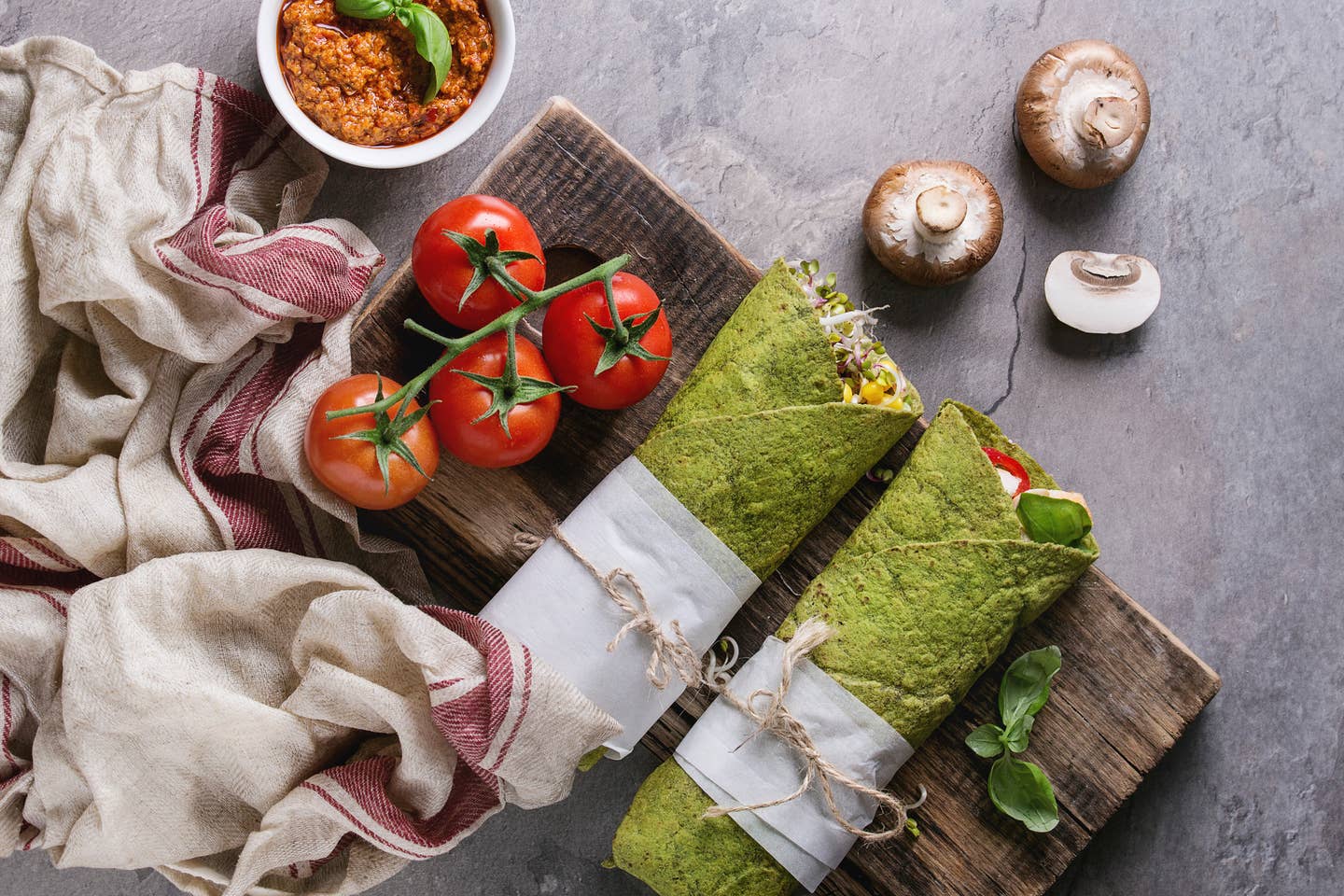
7 Seemingly Healthy Vegan Foods That Sabotage Your Diet, RDs Reveal
You may eat plant-based or vegan foods for your health, but there are plenty of seemingly healthy products that are but are actually full of hidden fats and calories, which may be as bad for you as the animal products you're staying away from. Here's what to know before you go to the store so you can maximize the benefits of your healthy diet.
“While the benefits of plant-based eating are clear, there are many vegan and plant-based foods that seem healthy but are in actuality, not great choices,” notes Kylie Ivanir, MS, RD, who runs her own private practice called Within Nutrition. Eating a well-rounded, plant-based diet is a boon for your health in both expected — reduce your risk for chronic disease, lose weight, and boost your energy — and surprising ways. And while you may think that coconut yogurt or a bottled smoothie habit is nutritious, they can actually be bad for your health. Below, seven plant-based foods you should ditch according to nutritionists.
1. Bottled High-Protein Fruit Smoothies
“Bottled high-protein fruit smoothies might seem like a good option, but they are very high in sugar, even though it isn’t considered added sugar. The first ingredient in many of these smoothies is fruit juice, which may make the sugar content close to 50 grams per serving,” offers Diana Gariglio-Clelland, RD, consultant dietitian for Next Luxury.
Instead of opting for these store-bought sugar bombs, build an RD-approved smoothie at home. If you’d like, make a double batch, so you have less making and cleanup involved.
2. Spinach Tortillas
We’re looking at you, lunch and dinner wrap enthusiasts. “Spinach tortillas might look healthy because they’re green, but they’re really just regular white flour tortillas with spinach powder added for color,” says Gariglio-Clelland. “Whole-wheat tortillas are healthier and contain much more fiber than white flour tortillas.”
3. Coconut Yogurt
“So many of my friends think this is a great healthy alternative to get that ‘creamy’ breakfast taste, but it hardly contains any protein and it is very fatty (mainly saturated fat),” cautions Janette Miller, RDN, the previous owner of GLAM Vegan in Miami, Florida. She notes that just one serving could contain 60 percent of your daily saturated fat intake.
Instead of coconut yogurt, Miller recommends trying a plant-based yogurt made with cashew milk, which is high in protein and contains less saturated fat.
4. Granola Bars
“The classic granola bar has 14 grams of sugar in one bar. There[are] also artificial flavorings and colors,” says Miller. In lieu of a granola bar, Miller says to opt for plant-based protein bars that aren’t high in sugar. You can also make homemade granola or granola bars with little or no added sugar to cut down on your daily intake of the sweet stuff.
These days, we’re loving this sweet potato spiced granola, which contains maple syrup for sweetener, which you may want to reduce or omit for an even healthier snack.
5. Veggie Chips, Crisps, and Straws
“These are actually fried and can be just as bad for you as regular chips are,” says Miller, noting that most have tons of seasoning on them, too (these flavor-enhancing blends can contain an excess of salt as well as artificial additives).
Also worth noting: “They are often made with sunflower and safflower oils, which are high in omega-6 fats, which tend to be more pro-inflammatory than omega-3 fats,” says Gariglio-Clelland, who tells clients to reach for healthier crunchy snacks like snap peas, walnuts, crispy dried apples, or roasted chickpeas instead.
6. Plant-Based Butter
If you’re spreading that seemingly better-for-you vegan butter on your toast or bagel or cooking with it on the regular, beware. “Vegan butter typically contains vegetable oils that can be inflammatory and harmful. For foods that do not easily yield oil, such as sunflower seeds, corn, or soybeans, removing the oil involves an aggressive process that uses high heat, chemical solvents, detergents, and deodorizers that can be toxic,” shares Ivanir. “Furthermore, the fats in these oils become damaged in this process, producing free radicals that can damage our cells,” she elaborates, suggesting you choose a vegan butter with avocado, olive, or coconut oil. Or, she says, skip the plant-based butter in favor of healthy spreads like hummus, mashed avocado, or nut butter. “These spreads contain healthy fats, no added vegetable oils, and are delicious,” she comments.
7. Store-Bought Condiments
“These are sneaky additives that can add too many calories, sugar, and preservatives to a dish,” says Aderet Dana Hoch, MS, RD. “Swap out your ketchup, yellow mustard, sriracha, vegan mayo, etc. for fresh herbs and dried spices,” she continues, also sharing that making a homemade batch of vegan aioli, free of additives and preservatives that the packaged versions have, is a solid choice.
You’d be hard-pressed to find us whipping up a salad or pasta these days without this four-ingredient spicy sauce. Double the ingredients when preparing the recipe and thank us later.
More From The Beet






